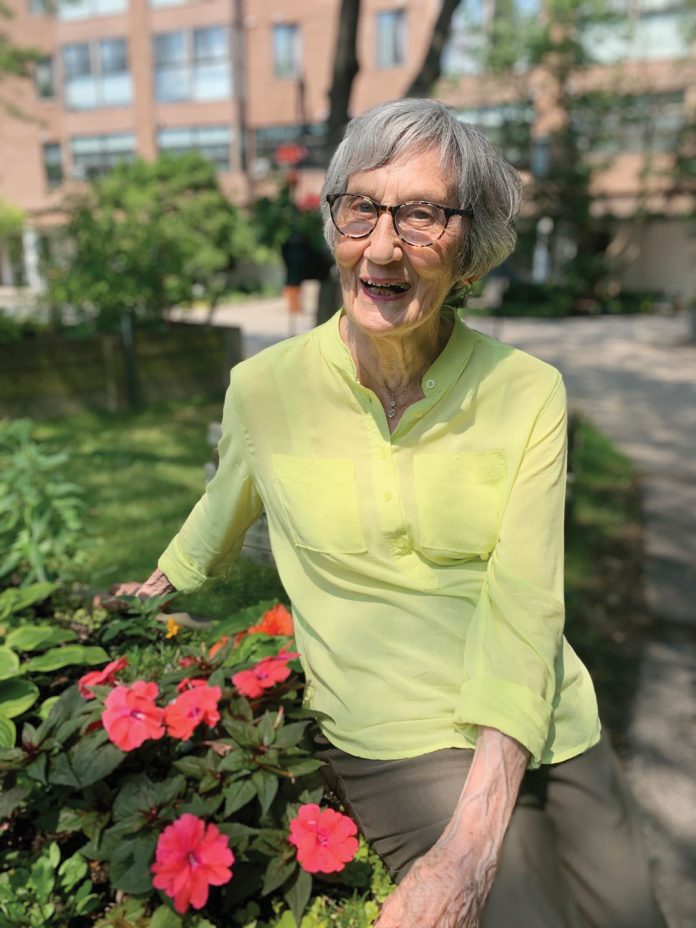“I’m from the Netherlands, from Holland. I’m 85 now, so I lived through World War ll.
Certainly, during the last two years of the war, we had hungry winters. I ‘think’ to remember when Rotterdam was burned down and I saw the smoke. We lived close to a railroad station, and the English would bomb the station so that the Germans could not take the metal for their weapons industry.
I think it’s so traumatic. And when I hear anything about war, or I see pictures, especially of war in the wintertime, it comes back to you and you realize what those people go through. My father was sometimes home, but the last few years he wasn’t because he was in hiding. We were too young, so they kept everything from us so we couldn’t tell anything when asked by the Germans. The last two years of the war we had the ‘hunger winters,’ something never to be forgotten as a city girl. We were so used to not being able to get certain items because you had to use coupons.
After the war, we felt the promise coming: we felt it from our parents and there was a new life coming. We could finally get our rain boots with blue ribbons which they promised we’d get after the war.
I never got to finish my social work training, but I went back to university in Seattle, took sociology courses—including Black history—and worked as a volunteer in the Headstart program. In the States, I was deeply involved with Black issues. It was right in your face: we [saw] Black soldiers coming back and there were no jobs for them; there was division everywhere…you just couldn’t help but get involved.
Boeing’s SST program was cancelled and we came to Canada in 1969. Once there, we had a family. We had four children, and I took some music programs and then taught music, mostly for young children.
I remember we drove with our baby through the United States and we came to Ottawa on a Saturday night, it was about 8 p.m. It wasn’t dark yet, we were on Carling Avenue, and I turned to my husband, Jan, shocked because there was a woman walking on the street. We’d never do that in Seattle at night. At that time in Seattle, there were security guards with guns in the stores. That’s how we went about our life and it was crazy; we had to be so careful.
We lived in the west end near Britannia Park for most of the time. The kids did sailboarding, they could bike to school, and it was just perfect there. We moved into Unitarian House six years ago. We are still our own boss. I knew quite a few people who lived here and I knew it was a great place. We are all from different backgrounds, we are all older so there isn’t a huge generation gap, and people here are from all over. We’ve all had different life experiences and we all get along with one another.
We love the bike paths in Westboro. We are always going to the market on Saturdays. We love going into the community to go to the stores—St. Vincent de Paul especially—and one of the many Bridgeheads. It’s a really great community.
We have four wonderful kids, three grandchildren and a great-grandchild. They mean more and more to us as we get older!”
Story collected by Charlie Senack
